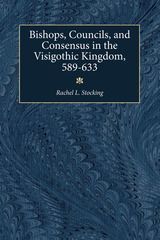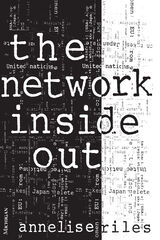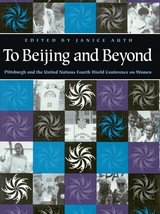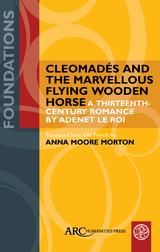3 books about (4th :

Bishops, Councils, and Consensus in the Visigothic Kingdom, 589-633
Rachel L. Stocking
University of Michigan Press, 2001
The medieval Visigothic kingdom--even after the full-scale conversion of the population from Arianism to Catholicism--was barely held together by a fluctuating mixture of tradition inherited from Roman law, Germanic and provincial influences, local custom, and Catholic values. In her study of a society riddled with instability and conflicting paradigms of power, Rachel Stocking dissects the social meaning of consensus in the early medieval state. Using the compelling example of contemporary records and by drawing out the often-conflicting aspirations of kings and bishops, she addresses the dynamic and contradictory relationship between the ideals of Christian governance and early medieval social conditions.
This eloquently presented, exhaustive study concludes that legislation, however persistently enacted, was unequal to the task of remedying a lack of unity and other social and political ills. Notions of consensus are explored as a way of maintaining community cohesion and order in the absence of strong central authorities. Other issues the author confronts are Catholic tolerance and intolerance toward heterodox and non-Christian "others;" the transformation and transmission of ancient ideals and social structures from the Roman to the later medieval worlds; and the position of medieval Spain in relation to the mainstream of western European history.
This nuanced study is a must-read for anyone interested in medieval life, politics, religion, and the precarious nature of the medieval state.
Rachel Stocking is Professor of History, Southern Illinois University at Carbondale.
This eloquently presented, exhaustive study concludes that legislation, however persistently enacted, was unequal to the task of remedying a lack of unity and other social and political ills. Notions of consensus are explored as a way of maintaining community cohesion and order in the absence of strong central authorities. Other issues the author confronts are Catholic tolerance and intolerance toward heterodox and non-Christian "others;" the transformation and transmission of ancient ideals and social structures from the Roman to the later medieval worlds; and the position of medieval Spain in relation to the mainstream of western European history.
This nuanced study is a must-read for anyone interested in medieval life, politics, religion, and the precarious nature of the medieval state.
Rachel Stocking is Professor of History, Southern Illinois University at Carbondale.
[more]

The Network Inside Out
Annelise Riles
University of Michigan Press, 2001
"Networks" and other artifacts of institutional life--documents, funding proposals, newsletters, organizational charts--are such ubiquitous aspects of the "information age" that they go unnoticed to most observers. In this work, Annelise Riles takes a sophisticated theoretical approach to examine the aesthetics of these artifacts and practices, to learn what their very forms and formats can tell us about knowledge and legality in today's world.
The immediate subject of Riles's ethnographic work was a group of Fijian bureaucrats and activists preparing for and participating in the United Nations Fourth World Conference on Women. Participants in this meeting and the activities surrounding it understood themselves to be "focal points" in national, regional, and global "networks."
Starting from the premise that anthropologists are "inside" the Network, that is, that they are producers, consumers, and aesthetes, not simply observers, of the artifacts of late modern institutional life, Riles enacts a new ethnographic method for turning the network "inside out." The resulting experiment in the theory and ethnography of transnational institutional practices makes an important contribution to the anthropology of knowledge.
With its focus on developing a method for studying transnational phenomena, The Network Inside Out will appeal not only to anthropologists, but also to legal scholars and political scientists.
Annelise Riles is Assistant Professor, Northwestern University School of Law, Research Fellow, American Bar Foundation.
The immediate subject of Riles's ethnographic work was a group of Fijian bureaucrats and activists preparing for and participating in the United Nations Fourth World Conference on Women. Participants in this meeting and the activities surrounding it understood themselves to be "focal points" in national, regional, and global "networks."
Starting from the premise that anthropologists are "inside" the Network, that is, that they are producers, consumers, and aesthetes, not simply observers, of the artifacts of late modern institutional life, Riles enacts a new ethnographic method for turning the network "inside out." The resulting experiment in the theory and ethnography of transnational institutional practices makes an important contribution to the anthropology of knowledge.
With its focus on developing a method for studying transnational phenomena, The Network Inside Out will appeal not only to anthropologists, but also to legal scholars and political scientists.
Annelise Riles is Assistant Professor, Northwestern University School of Law, Research Fellow, American Bar Foundation.
[more]

To Beijing and Beyond
Pittsburgh and the United Nations Fourth World Conference on Women
Janice Auth
University of Pittsburgh Press
Documents 1995 UN Fourth World Conference on Women in Beijing. Forty three essays by men and women who attended the conference tell of their experiences and how they’ve applied what they learned at home.
The words of these college presidents, students, teachers, homemakers, retirees, writers, clergy, and entrepreneurs who participated in the UN Fourth World Conference on Women document the remarkable initiative, energy, and vision of those who began and continue to coordinate the activities of Pittsburgh/Beijing ’95 and Beyond. Auth also offers background information on the three previous UN Women’s Conferences, outlines the work that has been accomplished since the 1995 conference, and the plans for implementing the Beijing Platform for Action at the local level. Her remarks and the stories she has collected offer an intimate portrayal of an historical event that was largely under-reported by popular media. Essential reading for anyone who wants to know what really happened and what they can do now.
The words of these college presidents, students, teachers, homemakers, retirees, writers, clergy, and entrepreneurs who participated in the UN Fourth World Conference on Women document the remarkable initiative, energy, and vision of those who began and continue to coordinate the activities of Pittsburgh/Beijing ’95 and Beyond. Auth also offers background information on the three previous UN Women’s Conferences, outlines the work that has been accomplished since the 1995 conference, and the plans for implementing the Beijing Platform for Action at the local level. Her remarks and the stories she has collected offer an intimate portrayal of an historical event that was largely under-reported by popular media. Essential reading for anyone who wants to know what really happened and what they can do now.
[more]
READERS
Browse our collection.
PUBLISHERS
See BiblioVault's publisher services.
STUDENT SERVICES
Files for college accessibility offices.
UChicago Accessibility Resources
home | accessibility | search | about | contact us
BiblioVault ® 2001 - 2024
The University of Chicago Press









